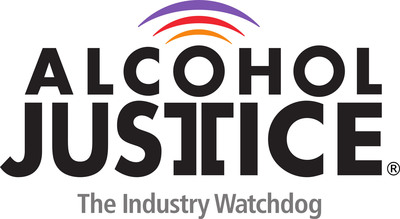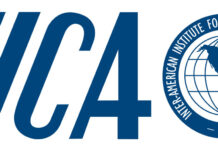SAN FRANCISCO, Nov. 28, 2017 /PRNewswire-HISPANIC PR WIRE/ — California Alcohol Policy Alliance (CAPA), and Alcohol Justice are not surprised by Senator Scott Wiener’s (D-San Francisco) latest attempt to push the legislature in the direction of increasing profits for the late night industry at public expense. They are however puzzled by the timing of Wiener’s announcement on the day that the California state legislature began hearings on sexual harassment in the Capital.

“Senator Wiener is tone deaf to the important matters of the day,” stated Sara Cooley Broschart, Alcohol Justice Advocacy Manager. “As he talks about the importance of late night alcohol revenue, women in Sacramento are testifying about sexual misconduct by legislators at bars or fundraisers serving alcohol. The costs of this legislation to women, commuters, and neighbors far outweigh the benefits to a few bar owners. Senator Wiener needs to get his priorities straight.”
The unintended consequences of extending alcohol last call include:
- quality of life deterioration for adjacent neighborhoods
- drinkers driving from areas where bars close earlier to bars with later last calls
- late night drinkers sharing the road with early morning commuters
- increased DUI accidents and fatalities
- limited budgets and personnel to deal effectively with the extra service calls
There is also vast peer-reviewed evidence that shows that two more hours of alcohol sales will nearly double alcohol-related violence, crime, police calls, emergency visits, etc.
“The Journal of the American Medical Association found that over 90% of domestic abusers were abusing alcohol not just regularly but at the time of the incident,” stated Margot Bennett, Executive Director Women Against Gun Violence. “To protect families and communities at large, we must not only provide reasonable regulation of guns but also provide reasonable regulation of alcohol that includes restrictions on the hours it can be sold. A 4 a.m. last call is far from reasonable and will only push incidents of alcohol-related violence further into the early morning hours.”
“The idea of bringing forward a bill to allow bars to serve alcohol until 4 a.m., especially in light of all the recent claims of sexual assault is unconscionable,” said Patty Hoyt, Alcohol Policy Coordinator at Discovery Counseling Center. “Serving alcohol until 4 a.m. will only increase the opportunities for unwanted advances and possible assaults as it will increase the amount of time people can consume and end up intoxicated.”
Wiener’s failed first attempt this year (SB 384) was a dangerous piece of legislation that would have stripped away the standard protections of a normal 2 a.m. closing time. SB 384 drew the ire of local health, prevention, and recovery groups as well as MADD and law enforcement organizations that rallied at every opportunity to express strong opposition. They drew the attention and support of a steadily growing chorus of elected representatives, determined to call out the damage their constituents would suffer from an ostensible “local control” bill.
“The cost of extending hours for California’s ‘nightlife industry’ is not factored into their 6-billion-dollar economy: drunk driving, sexual assault or damage to personal property impact lives and public costs but not bar owners’ balance sheets,” said Lisa Bridges, Co-Chair of CAPA – California Alcohol Policy Alliance. “Senator Wiener should know that CAPA, a diverse statewide coalition, is deeply committed to defeating any new attempt to keep bars, restaurants and clubs open past 2 a.m.“
For More Information go to: www.AlcoholJustice.org or www.alcoholpolicyalliance.org/
CONTACT:
Michael Scippa 415 548-0492
Jorge Castillo 213 840-3336
Logo – http://mma.prnewswire.com/media/612132/ALCOHOL_JUSTICE_LOGO.jpg
SOURCE Alcohol Justice; California Alcohol Policy Alliance







